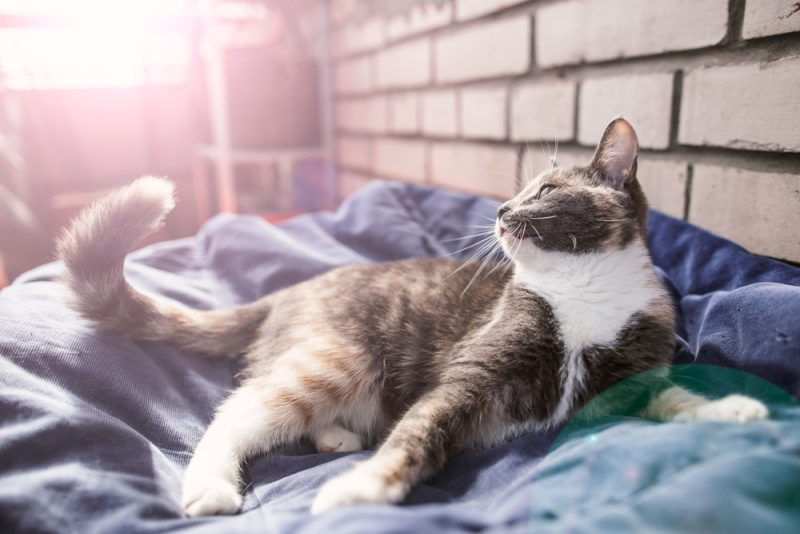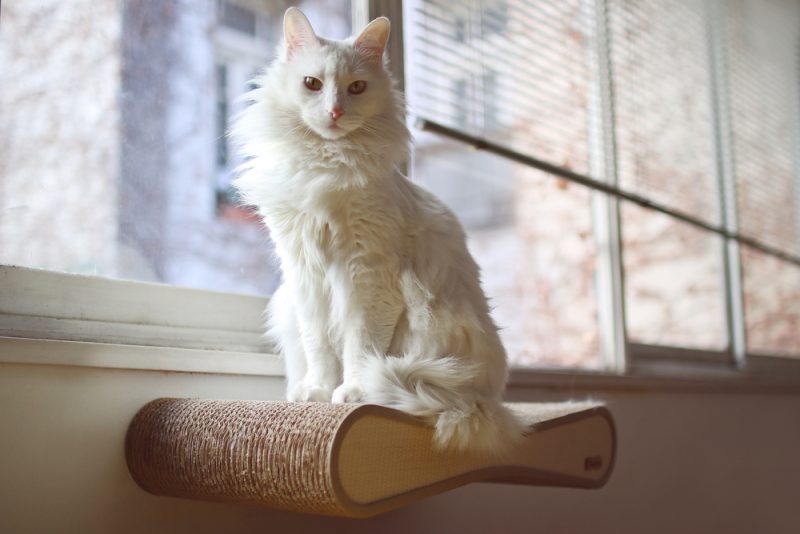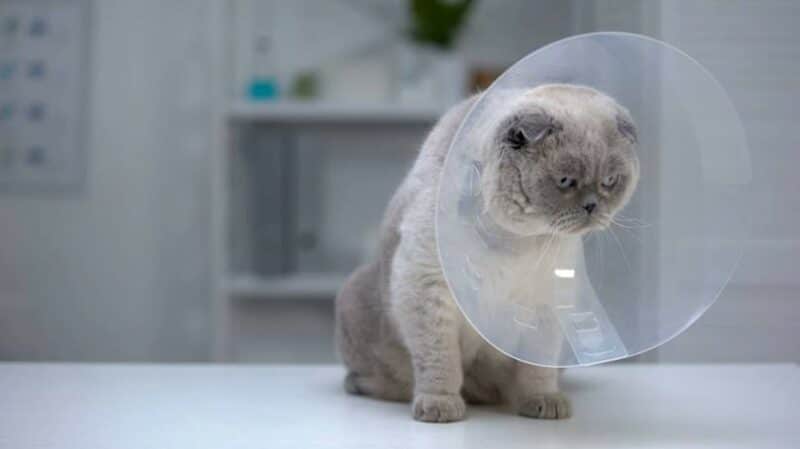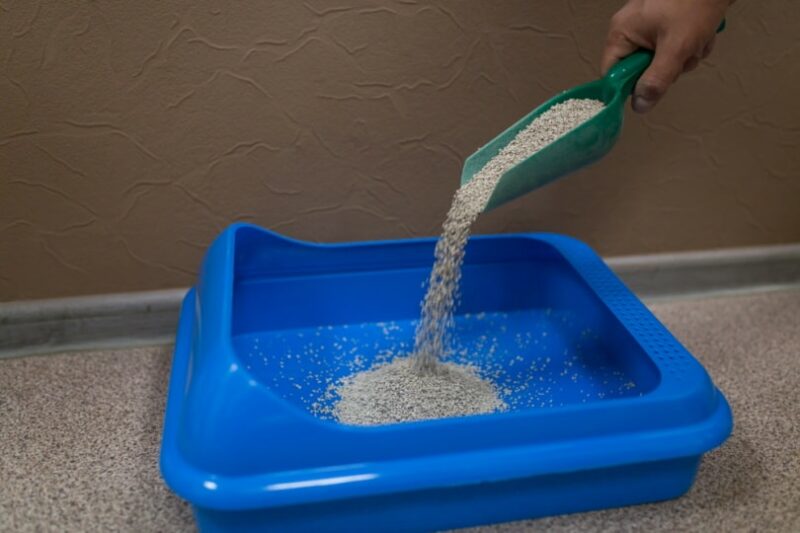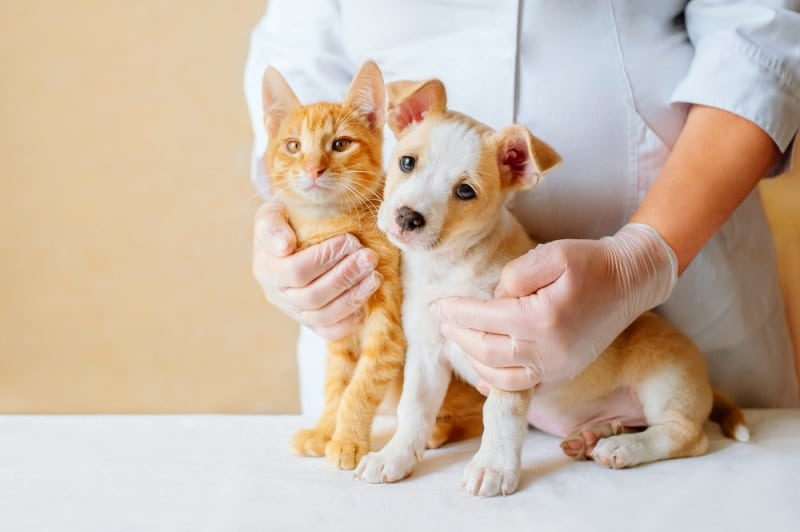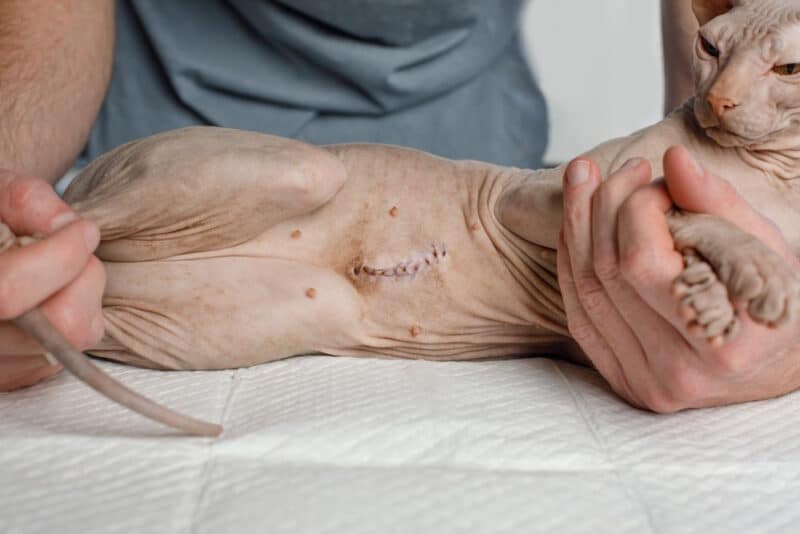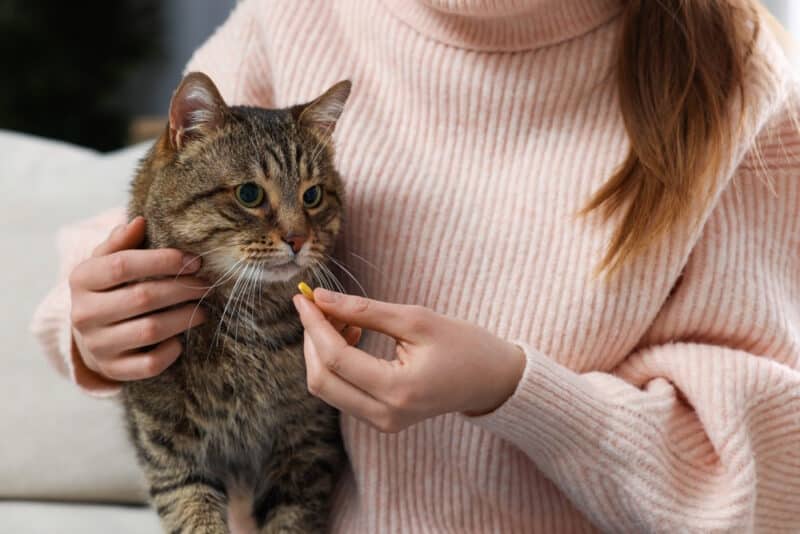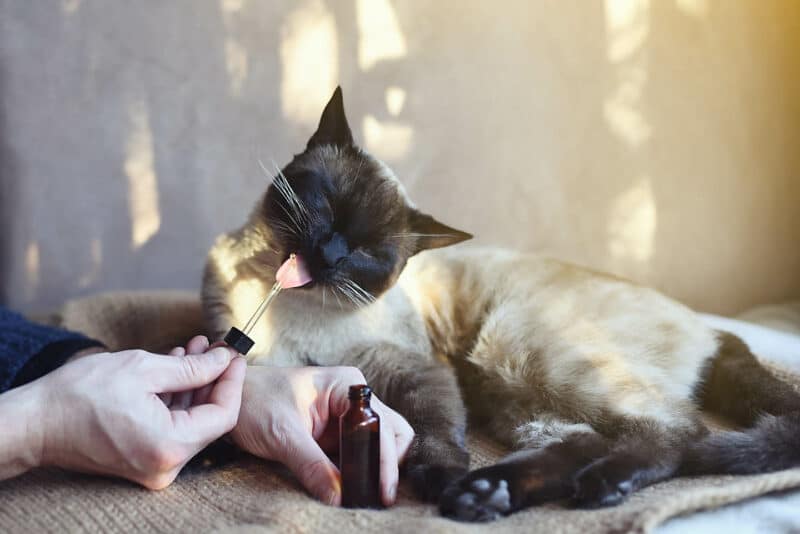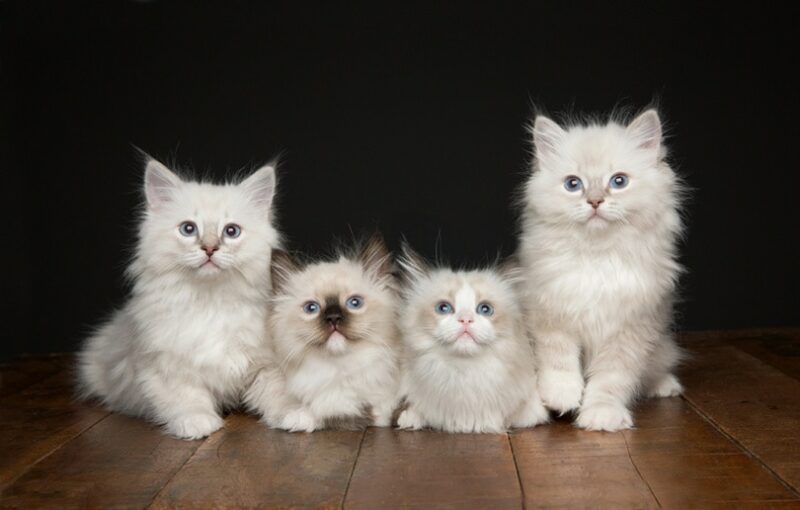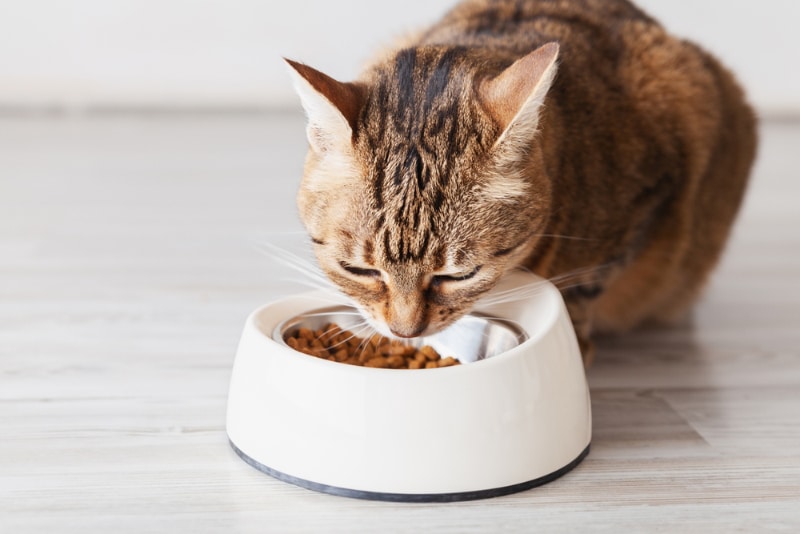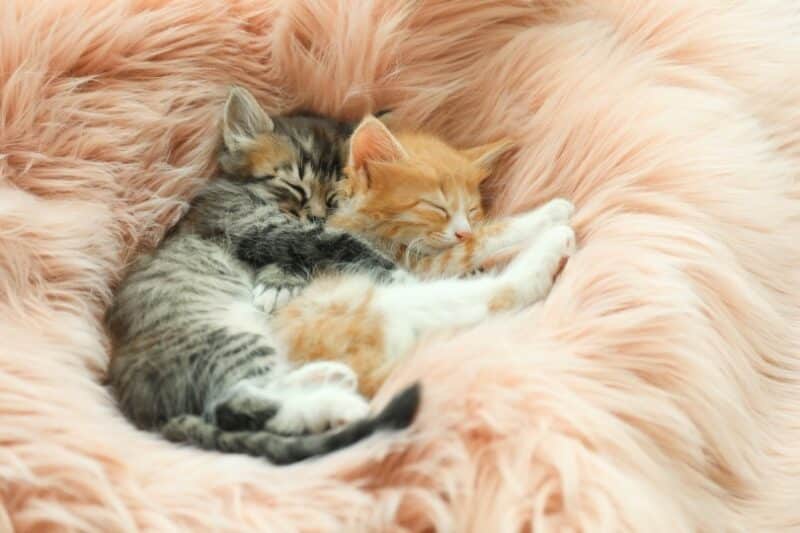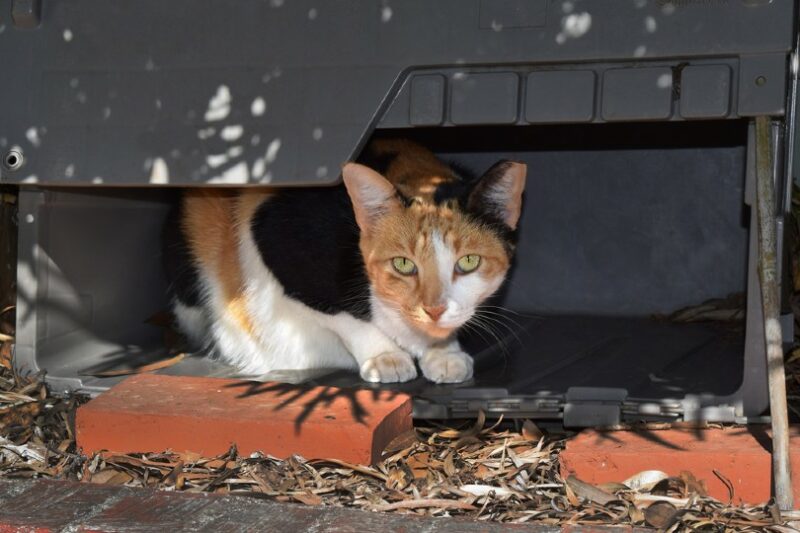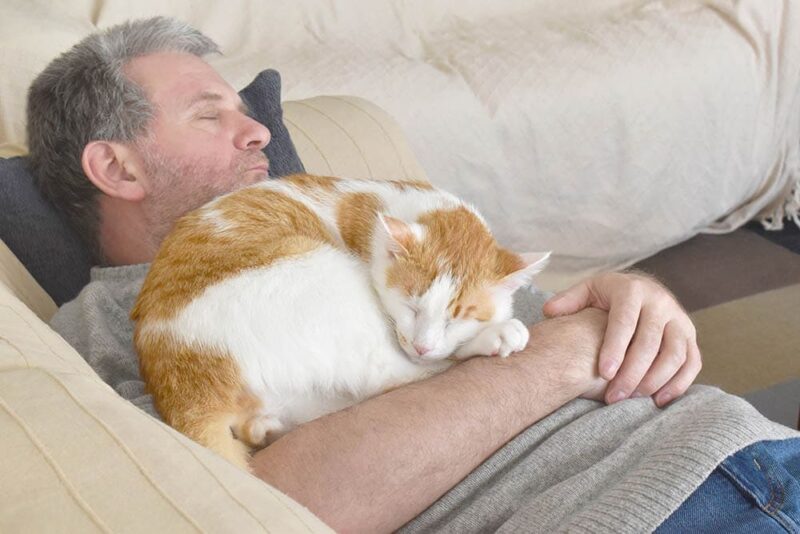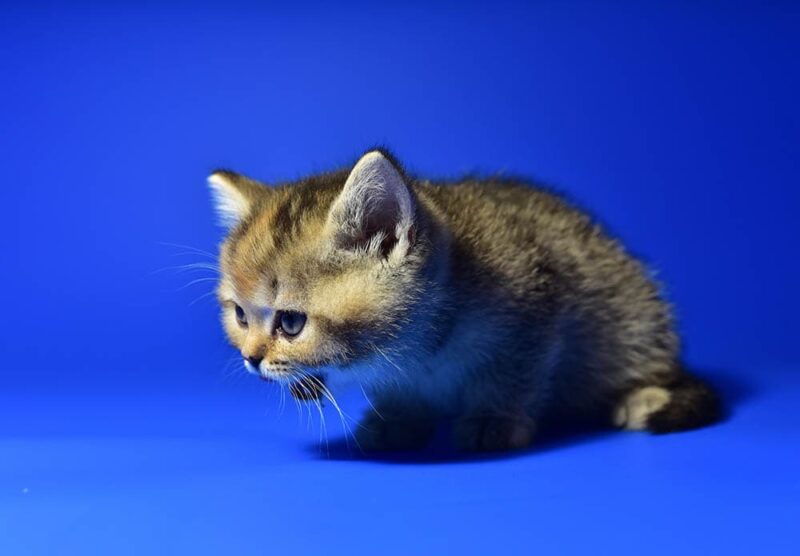Daylight savings time is either a hassle or a gift, and there’s no way around it, as an extra hour tacked on at the end of the day or a lost hour of sleep is something you have to account for. No matter what you think of daylight savings time, you’ve probably never stopped to wonder if it affects your cat the same way. They seem to sleep and wake whenever they want, so it’s probably no big deal, right?
Daylight savings time can affect your cat, but probably not very much. For some cats that are extremely attuned to their routine, it could be somewhat stressful, while most cats probably don’t care that much. The two main things it affects are feeding times and medications, which we’ll get into below.
Read on for more details on how daylight savings time (DST) affects both feeding and meds, how your cat’s internal clock works, and how you can best help your cat if DST seems to stress them out.

Can Cats Tell Time? Cats’ Internal Clocks Demystified
Have you ever noticed that your cat seems able to tell time, at least a little? Many cat owners have awoken to a meow and a pleading paw when they overslept breakfast, leading you to wonder how they know the time. We were only off by like, half an hour, Kitty, give us a break!
Cats are able to distinguish between time intervals remarkably well. In studies involving cats and their perception of time 1, it was found that they could correctly identify a 5-second interval; the cats in the study were able to distinguish between such an interval versus a 10- or even an 8-second interval. Therefore, your kitty pawing at you for their meals isn’t mere coincidence, though most seasoned cat owners already probably knew this was the case.
Like us, cats have finely tuned circadian rhythms or internal clocks that help their bodies roughly tell the passage of time. They know about how long it’s been since they’ve eaten and when they normally eat, for example.
Cats are also closely attuned to both dawn and dusk, which are the times they’re most active due to them being the main feline hunting times in nature. Actually, the sun is a really good external indicator for them to learn when things happen relative to dawn or dusk.
The sun also plays a role in a cat’s reproductive cycle. One of the biological triggers for a female cat’s heat cycle is the duration of sunlight as perceived by her brain. Instinctively, this would cue her mind to know when winter is over and springtime is approaching, providing more hunting opportunities to find food for her prospective kittens.
So no, cats don’t wear a Timex or read clocks, but they do have a general idea of what time is. For them, that’s enough to go about their little kitty lives. They don’t exactly go to work or make appointments, so why mess with a good thing by inventing clocks? Checkmate, humans.
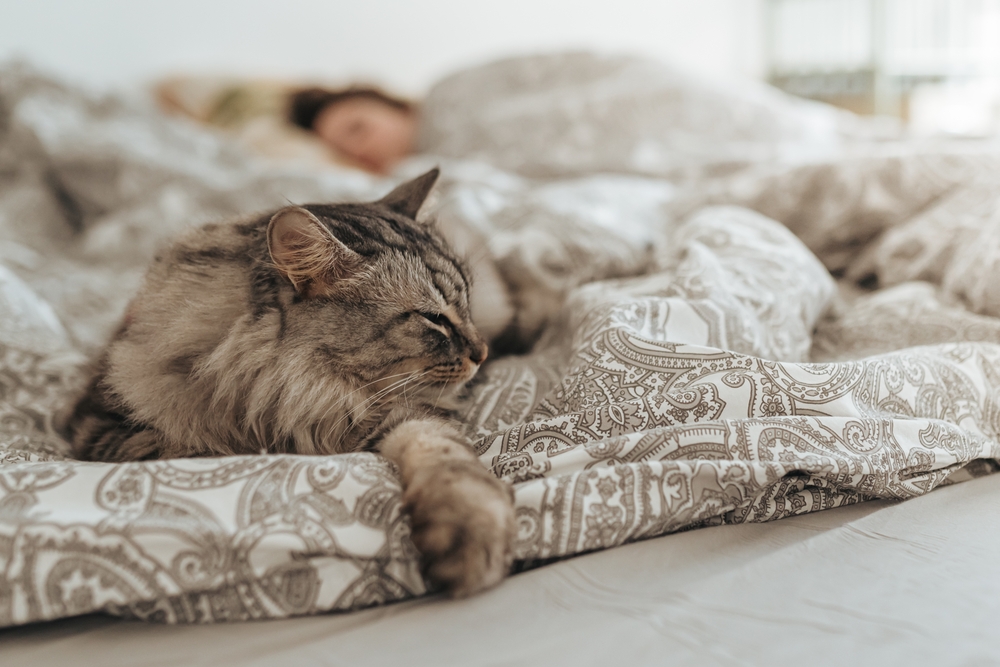
Does Daylight Savings Time Affect Feeding Times?
For many cats, that’s a resounding yes. Cats with a regular feeding routine learn that routine, and it becomes an expected part of their day. It’s sort of like how you know when you’ve worked past lunch or slept past breakfast just by how you feel, for example. However, this all depends on how particular your cat is about their routine. A lot of cats don’t really care, while others will definitely let you know.
Does Daylight Savings Time Affect Pet Medications?
Unless your cat’s medications are time-sensitive and specifically scheduled, such as certain epilepsy medications, daylight savings time doesn’t have a drastic effect on when to give your cat their regularly scheduled prescriptions. However, it’s still best to try and keep to roughly the same times so the interruption to your cat’s routine is as minimal as possible.
A good trick to manage your pet’s medications when daylight savings are about to be implemented is to set a timer for their next dose, rather than relying on your clock. For example, if your cat needs their medication every 12 hours and daylight savings time adjustments are abound, set a 12-hour timer after their most recent dose to not have the time change confuse you.
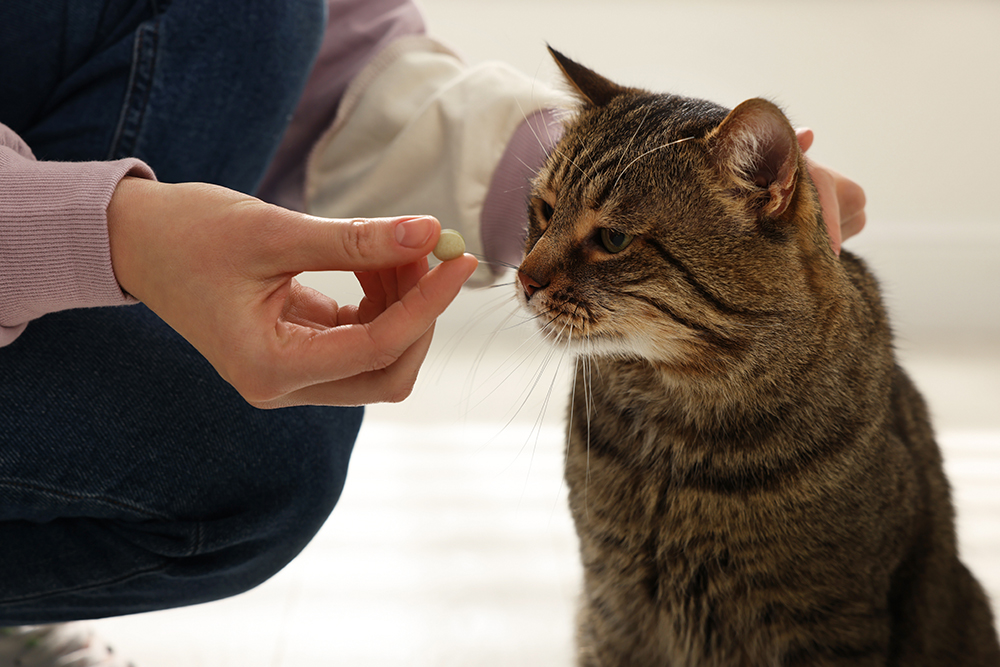
How to Help Your Feline Friend Fall Back & Spring Ahead
While normally not a huge deal, there’s plenty of anecdotal evidence that daylight savings time can wreak havoc on some kitties just as it can mess with us humans. To help make this pointlessly weird time change go more smoothly for your cat, there are some things you can do.
- Ensure your cat has a comfortable, private sleeping space to get the best quality sleep possible leading up to a daylight savings time-related time change.
- Consider shifting your cat’s nightly playtime routine by 15 to 30 minutes to adjust for the change.
- Before falling back, start feeding your cat 15 minutes earlier for a few days—if springing ahead, 15 minutes later than usual.
- Alternatively, stick to the same time you were feeding your cat. If dinner was at 8 PM and time went back, dinner is now at 7 PM.
- Begin using an alarm clock before time changes. Even if you don’t need it, your cat can use it as an external cue that the day has begun.

Conclusion
Cats generally aren’t bothered too much by daylight savings, but some are more sensitive to the change in their routine than others. If that’s the case for your kitty, you can slowly adjust feeding times and help them get the best sleep possible to make the change as minimally disruptive as possible.
Featured Image Credit: Shutterstock, Koldunov Alexey
